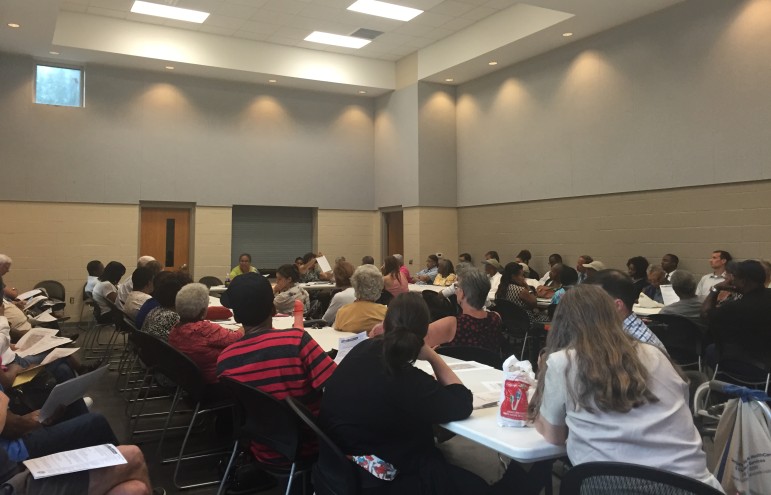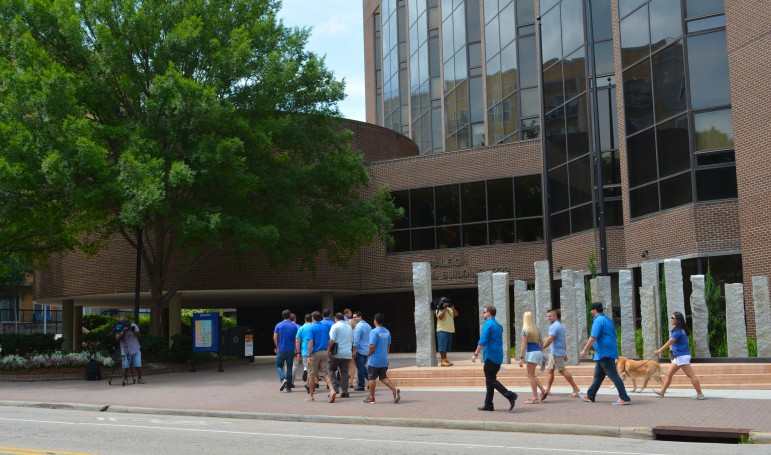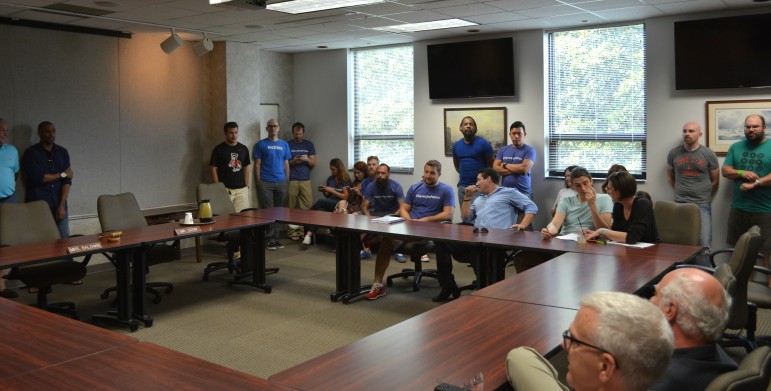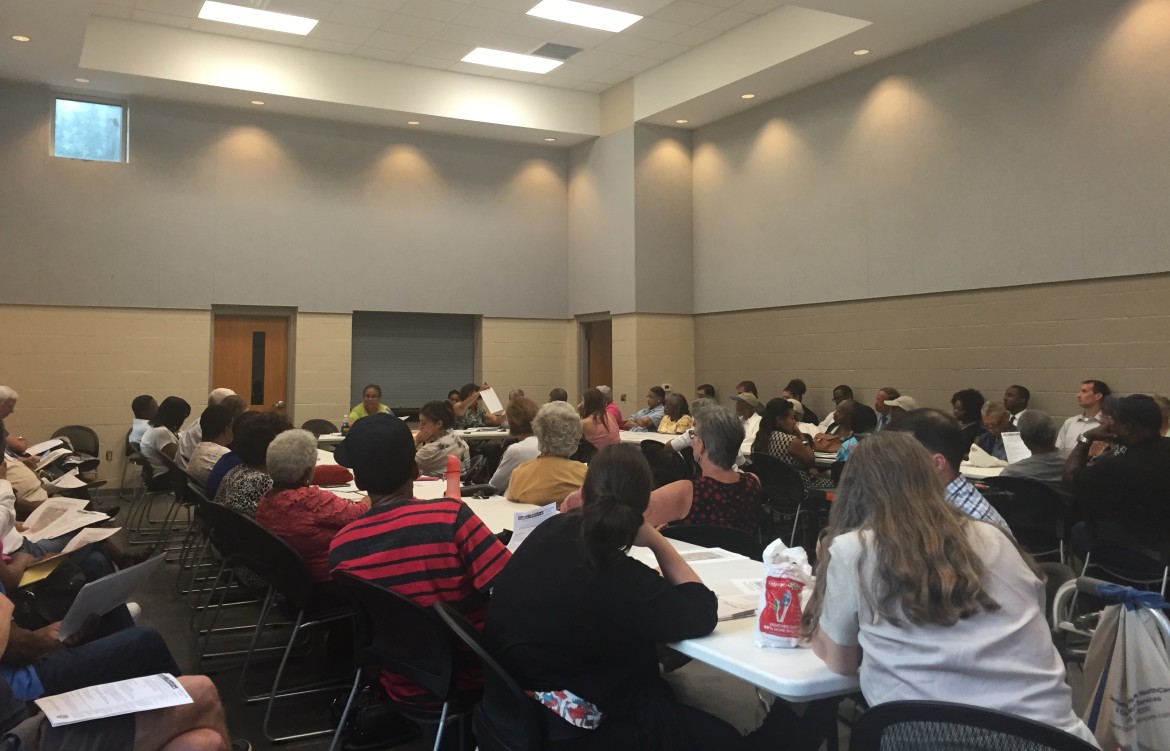One of the many topics of discussion at last week’s monthly meeting of the Central CAC was a proposed change to the city’s private use of public space ordinances.

James Borden / Raleigh Public Record
The Central CAC heard a presentation on the city’s plans for changes to the sidewalk-dining ordinances
Marks argued that the initial intent of the sidewalk-dining ordinance, last updated in 1999, was to allow restaurants to provide an outdoor dining area for their patrons.

Will Marks
This, he said, has led to problems with noise, litter and pedestrian access to sidewalks.
As originally proposed, the text change would have specifically prohibited private clubs from using sidewalk space for patrons wishing to sit outdoors. A public backlash against the limitation led Council last month to send the proposed change to the Law & Public Safety Committee for further analysis.
Two alternatives presented at last month’s L&PS meeting would both allow businesses such as Paddy O’Beers and the Raleigh Wine Shop to continue to offer seating on a portion of the sidewalks in front of their businesses. The original text change, which would have restricted private clubs, was thrown out.
Marks criticized the backlash that brought about these alternatives, arguing that business owners, who have said a prohibition on outdoor seating could cost them hundreds of thousands of dollars in revenue, had no ground to stand on.
“A lot of people feel like they’re having their rights being taken away; nobody is taking their rights away. It’s called private use of public space,” Marks said.
“That’s a privilege that the city confers on businesses — it’s not a right that can be taken away — and with privileges come responsibilities.”

James Borden / Raleigh Public Record
Large crowds turned out to a Law & Public safety meeting last month to oppose potential restrictions on sidewalk dining ordinances
“The whole city’s going to become an entertainment district,” he said.
“Monoculture is weak and boring, diversity is powerful and interesting. We need an interesting city, not a boring city.”
Marks’ comments were received enthusiastically by the large crowd, which had packed the meeting room at the Top Greene Community Center.
Although Marks had invited Councilors Stephenson and Weeks, both in attendance that night, to chime in on his presentation, neither had anything to add.
When approached afterward, Stephenson said he saw the sidewalk dining issue largely as one of enforcement, echoing sentiments expressed by Councilor Mary Ann Baldwin during last month’s Law & Public Safety meeting.

James Borden / Raleigh Public Record
Large crowds forced last months Law Public Safety meeting to move down to the council chambers
